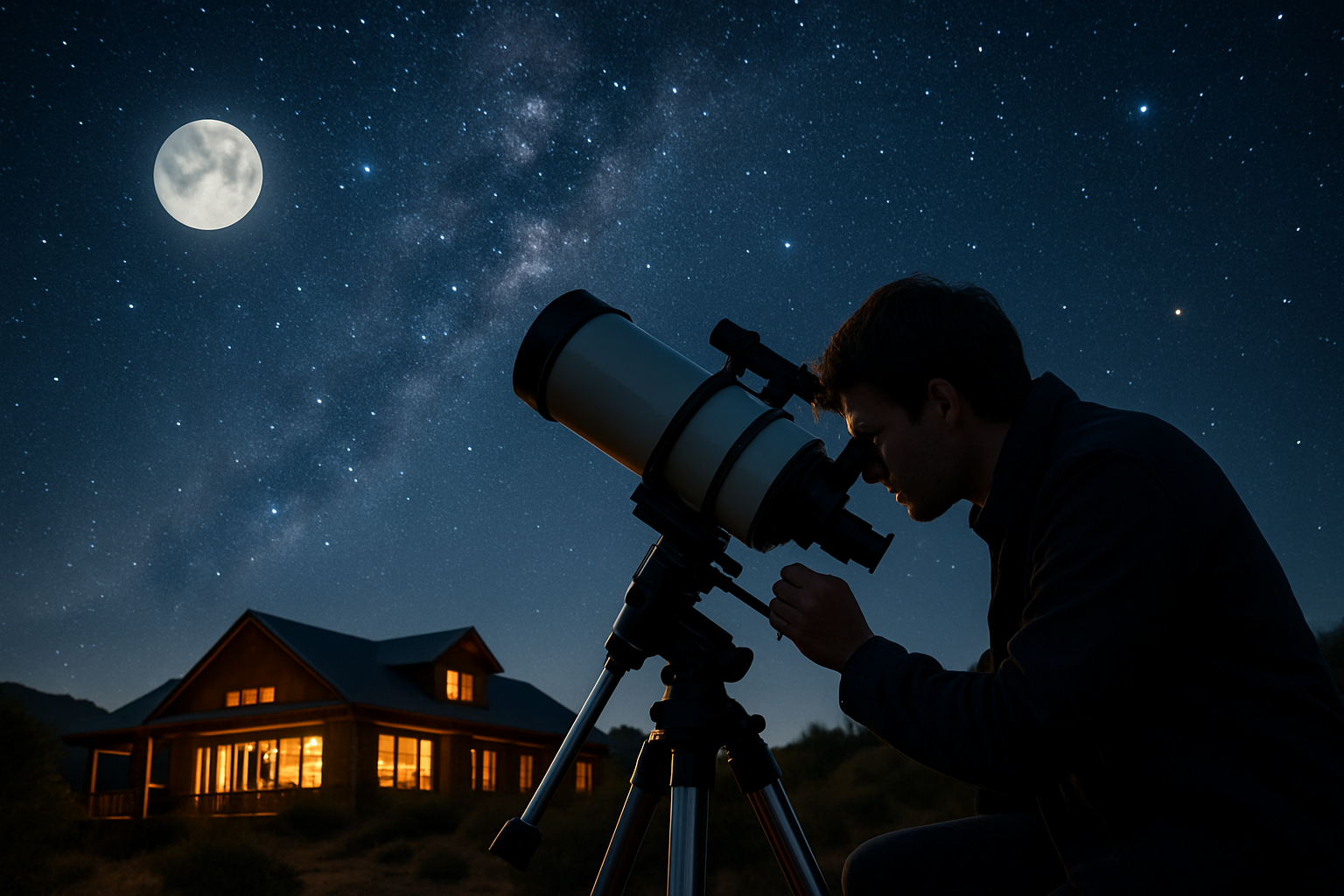Exploring the World of Astro-Tourism: Stargazing Adventures for the Modern Traveler
Imagine a vacation where the darkest night unveils the most breathtaking sights. Astro-tourism, a burgeoning niche in the travel industry, offers just that. This cosmic travel trend combines the allure of pristine night skies with the thrill of exploration, attracting both amateur stargazers and seasoned astronomers. As light pollution dims the stars in urban areas, remote destinations are becoming beacons for those seeking celestial wonders.

The International Dark-Sky Association, founded in 1988, has been instrumental in promoting the protection of night skies and educating the public about the importance of dark skies. Their Dark Sky Places program, which certifies locations with exceptional stargazing conditions, has helped put astro-tourism on the map for many travelers.
Today, astro-tourism encompasses a wide range of activities, from simple stargazing in remote locations to elaborate astronomy-themed resorts and tours. The growing interest in space exploration, fueled by high-profile missions and the commercial space race, has further boosted the appeal of astro-tourism.
Dark Sky Destinations: Where to Find the Stars
The key to a successful astro-tourism experience is finding locations with minimal light pollution and clear skies. Some of the world’s top dark sky destinations have become astro-tourism hotspots:
-
Atacama Desert, Chile: Known for its extraordinarily clear skies, the Atacama Desert is home to several world-class observatories and offers guided stargazing tours.
-
NamibRand Nature Reserve, Namibia: Africa’s first International Dark Sky Reserve provides stunning views of the southern night sky.
-
Aoraki Mackenzie International Dark Sky Reserve, New Zealand: This reserve offers some of the darkest skies in the world and hosts the Dark Sky Project for visitors.
-
Cherry Springs State Park, Pennsylvania, USA: One of the darkest spots on the eastern seaboard of the United States, this park is a favorite among amateur astronomers.
-
Pic du Midi, France: This mountaintop observatory in the Pyrenees offers overnight stays with access to professional telescopes.
These destinations not only provide optimal viewing conditions but often offer additional astronomy-related activities and education programs.
The Astro-Tourism Experience
Astro-tourism experiences can range from casual to highly specialized. Many travelers start with simple stargazing tours, where guides point out constellations and share celestial lore. These tours often include the use of telescopes or binoculars to get a closer look at planets, stars, and deep-sky objects.
For those seeking a more immersive experience, astronomical resorts and camps are gaining popularity. These specialized accommodations offer comfortable lodging in dark sky areas, often with on-site observatories or telescopes available for guest use. Some even provide astronomy workshops and astrophotography classes.
Astrophotography tours have become a niche within astro-tourism, catering to photographers looking to capture stunning images of the night sky. These tours often combine instruction in night photography techniques with visits to scenic dark sky locations.
For the ultimate astro-tourism adventure, some tour operators offer trips timed to coincide with celestial events like meteor showers, eclipses, or the aurora borealis. These event-based trips can sell out years in advance, highlighting the growing enthusiasm for astronomical phenomena.
The Impact of Astro-Tourism on Local Communities
The growth of astro-tourism has had a significant impact on many remote communities. Areas that previously had little tourism infrastructure are now developing amenities to cater to stargazers. This has created new economic opportunities in regions that may have struggled with declining traditional industries.
However, the influx of visitors to dark sky areas also presents challenges. Preserving the very darkness that attracts tourists requires careful management of development and visitor behavior. Many astro-tourism destinations have implemented strict lighting policies and visitor education programs to maintain their dark sky status.
The Future of Astro-Tourism: Trends and Innovations
As astro-tourism continues to grow, several trends are shaping its future:
-
Sustainable Practices: There’s an increasing focus on sustainable astro-tourism that minimizes environmental impact while maximizing the viewing experience.
-
Technology Integration: Apps and augmented reality tools are enhancing the stargazing experience, allowing visitors to easily identify celestial objects.
-
Space Tourism Tie-Ins: As commercial space tourism becomes a reality, some astro-tourism operators are offering ground-based experiences that complement or prepare for space flights.
-
Dark Sky Urban Experiences: Even cities are getting in on the trend, with rooftop observatories and planetariums offering astro-tourism experiences in urban settings.
-
Cultural Astronomy: There’s growing interest in combining stargazing with learning about cultural astronomy practices from indigenous communities around the world.
Stellar Tips for Aspiring Astro-Tourists
• Plan your trip around the lunar cycle - new moon periods offer the darkest skies
• Invest in a good pair of binoculars - they’re more portable than telescopes and great for beginners
• Download a stargazing app to help identify celestial objects
• Bring warm clothing - even in summer, nights can be chilly in prime stargazing locations
• Allow time for your eyes to adjust to the darkness - it can take up to 30 minutes for full dark adaptation
• Consider joining an astronomy club for access to equipment and expertise
• Practice astrophotography techniques before your trip to make the most of dark sky photo opportunities
Astro-tourism offers a unique way to connect with the cosmos and gain a new perspective on our place in the universe. As light pollution continues to obscure the night sky for much of the world’s population, these stargazing adventures provide not just a vacation, but a rare glimpse into the wonders of the universe. Whether you’re a seasoned astronomer or simply curious about the night sky, astro-tourism opens up a world of celestial exploration, promising unforgettable experiences under the canopy of stars.






